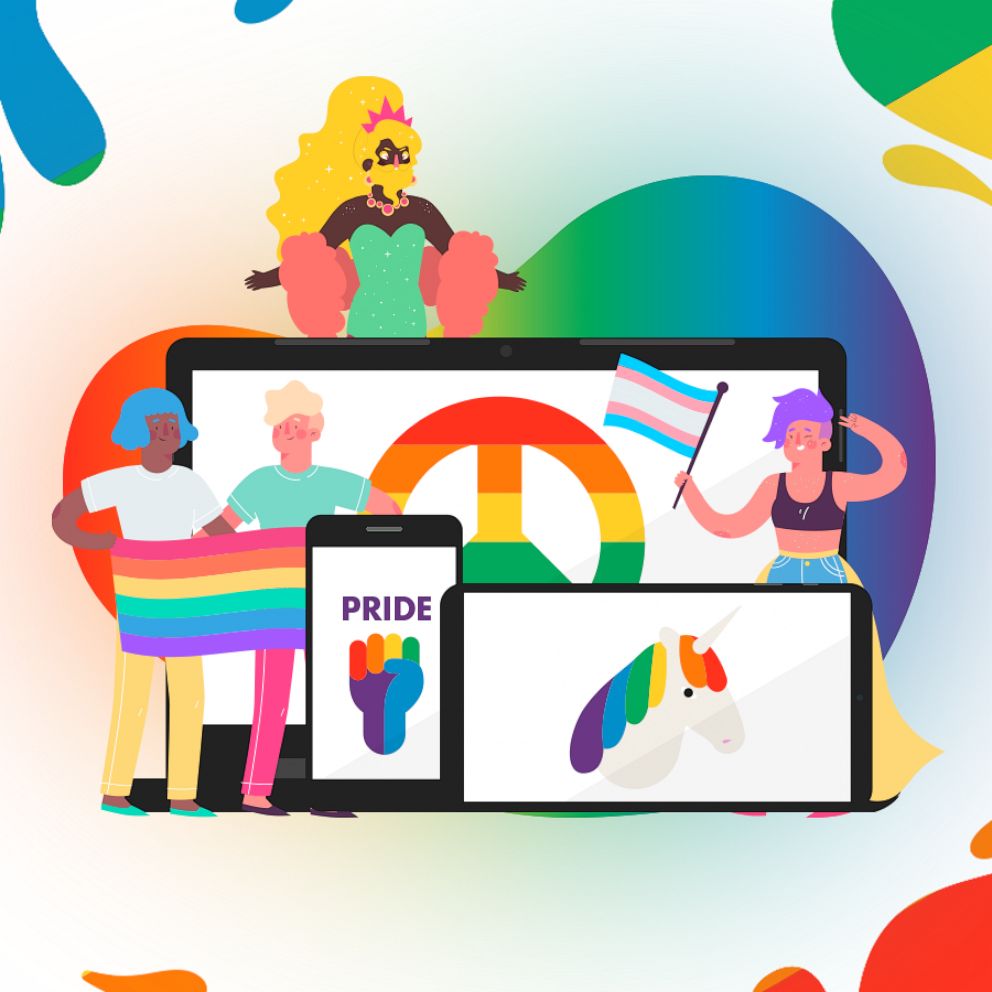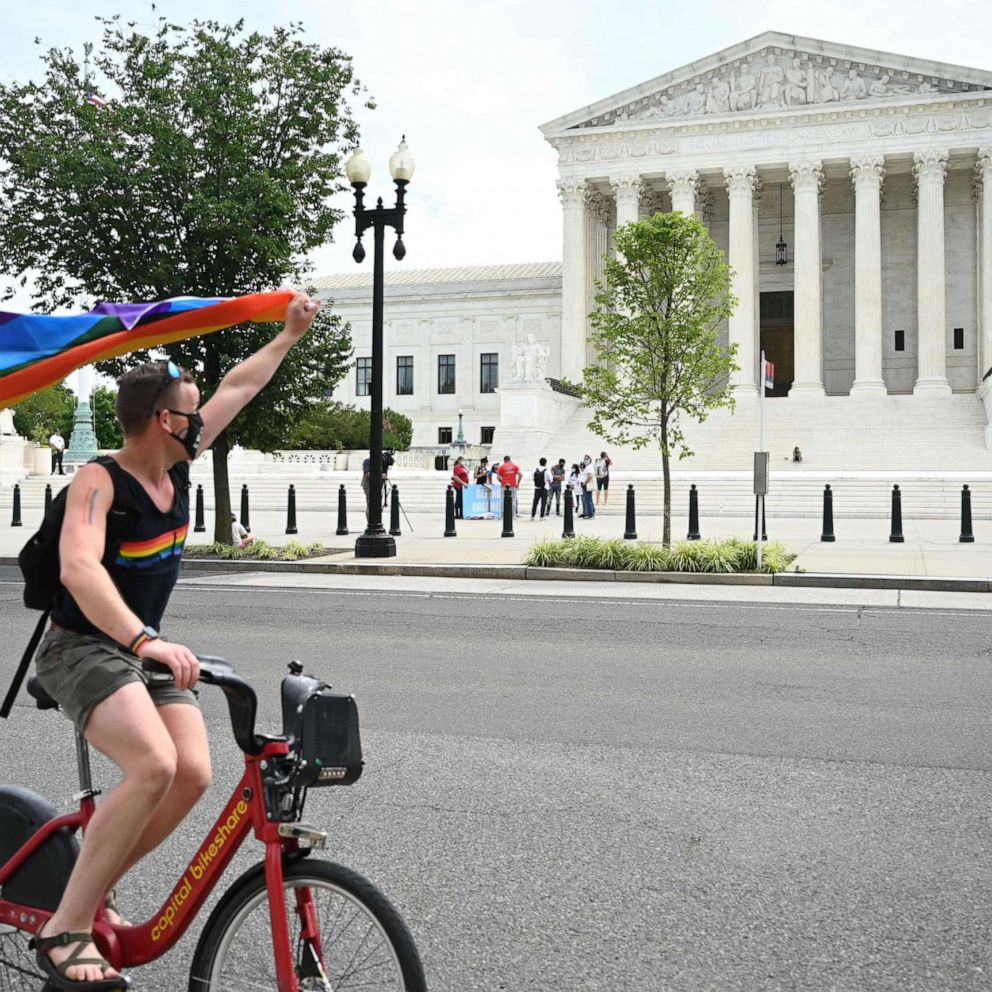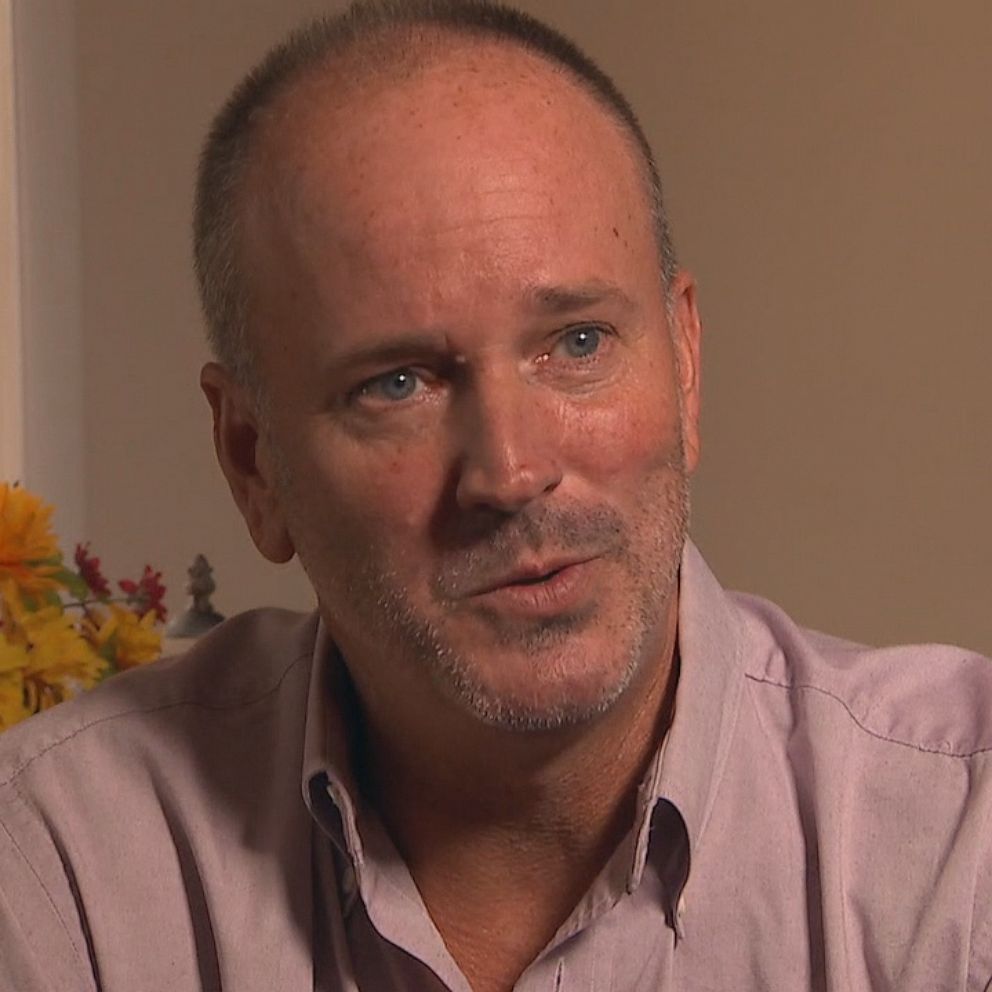What I’ve learned since coming out in my BYU commencement speech last year
It’s been a year since I came out publicly as gay.
Brigham Young University graduate Matt Easton came out during his commencement speech in April 2019. The valedictorian for the College of Family, Home, and Social Sciences at BYU, who majored in political science, told the crowd, "I stand before my family, friends and graduating class today to say that I am proud to be a gay son of God." His speech made national news and he received an outpouring of support and attention from members of the LGBTQ community. In this personal essay, Easton, 25, reflects on how his life has changed since he gave that now-famous speech and how the world reacted to learning he is gay.
Recently, the cottonwood trees have begun blooming in my hometown of Cottonwood Heights, Utah. Small tufts of cotton-like seeds float through the air, giving the illusion of snow falling gently to the ground.
It's one of my favorite times. The little puffs herald the coming of summer and the chance to have some of my grandma's homemade mint ice cream. They put neighbors in fits of sneezes that fill the town with offerings of "bless you" everywhere you go, like little graces to reconnect with humanity.
This year, however, they evoked a different reaction in me -- I distinctly remember thinking of how much I've changed since I last saw the seeds drifting by.
For starters, I look a bit different -- I've finally had a chance to grow out my facial hair -- and I also feel different. I've worked on my dream campaign as a staffer for former presidential candidate Pete Buttigieg, faced unemployment in the midst of a pandemic and even weathered my first earthquake.
One difference in particular, though, stands out: It's been a year since I came out publicly as gay.
Last year, I made international news when I came out during my valedictorian speech at my college graduation. This was especially significant because I attended Brigham Young University, a conservative Mormon-owned college known for its strict code of conduct that forbids any form of romantic homosexual expression.
Less than a decade ago, a student couldn't even be openly out as LGBTQ+ and remain at the school, and discrimination against non-heterosexual students remains today.
Still, I was surprised when my story started gaining such traction. I quickly went from "the kid who always orders a large popcorn for himself at the movies and eats the whole thing" to "the kid who went on 'The Ellen DeGeneres Show!'"
It was exhausting to have my character and motivations picked apart by critics in my community, but it was also exciting to feel like I had a voice and an audience ready to listen for the first time.
My family was mostly supportive, although I found out through the grapevine that my uncle was angry I had "selfishly made the graduation all about myself." I received the same feedback from my mission president, a spiritual leader for young Mormon men and women on missions.
It was difficult at first to hear this from people I cared about, mostly because I knew they had engaged with biased headlines instead of actually listening to my speech or approaching what I'd done with an open mindset, but my dad was the one who calmed my anxieties about it.
"If people have a problem with what you did, it's a problem with them and not a problem with you," he told me. "Your mom and I love you, and that's all that matters."
I've quickly learned that he's right; having supportive parents made all the difference with letting go of the negative and focusing on all the great opportunities that came from coming out.
While the fanfare received from my commencement speech was fun, it didn't last forever. When it faded, I was left with the same questions most queer people who come out have: How do I navigate my new identity moving forward? Will my family relationships change? What's the best way to support my new community?
Some part of me thought that coming out would be like finding a one-size-fits-all answer to every question I was facing. I'm still relatively new to being openly gay, but I've found that there is much more nuance involved, like a cottonwood seed preluding both summertime and hayfever season.
I think that while coming out doesn't magically solve everything, it definitely still has magic in it.
For example, I still struggle with the internalized homophobia ingrained in me since birth. In the past year, so many people have told me, "I always knew you were gay!" That phrase still sends a pit into my stomach, reminiscent of a time when I shamed myself into hiding parts of my identity for fear that someone might discover my secret.
I'm still learning to rewire that thinking -- it's OK people think I'm gay, because I am -- and I'm OK that it's going to take awhile to work through this.
Not long after coming out, I reconnected with one of my older cousins. He mentioned I was the first openly gay person he's ever known. (I know, how could this be true in 2019?!) When his child heard about my speech in the news, my cousin told me that for the first time he stopped himself from reciting a religious condemnation and instead simply told his son that "some people like boys and some people like girls, but the important thing is to love everyone."
In this way, I think that while coming out doesn't magically solve everything, it definitely still has magic in it.
Last summer, I visited Stonewall Inn, a bar in New York's Greenwich Village and the birthplace of the modern LGBTQ+ rights movement.
From the moment I walked in, I could recognize it was sacred space. I couldn't help but imagine the brave individuals 50 years prior building up the courage and fighting for my right to be openly gay. I felt proud of the legacy my queer forebearers fought for.
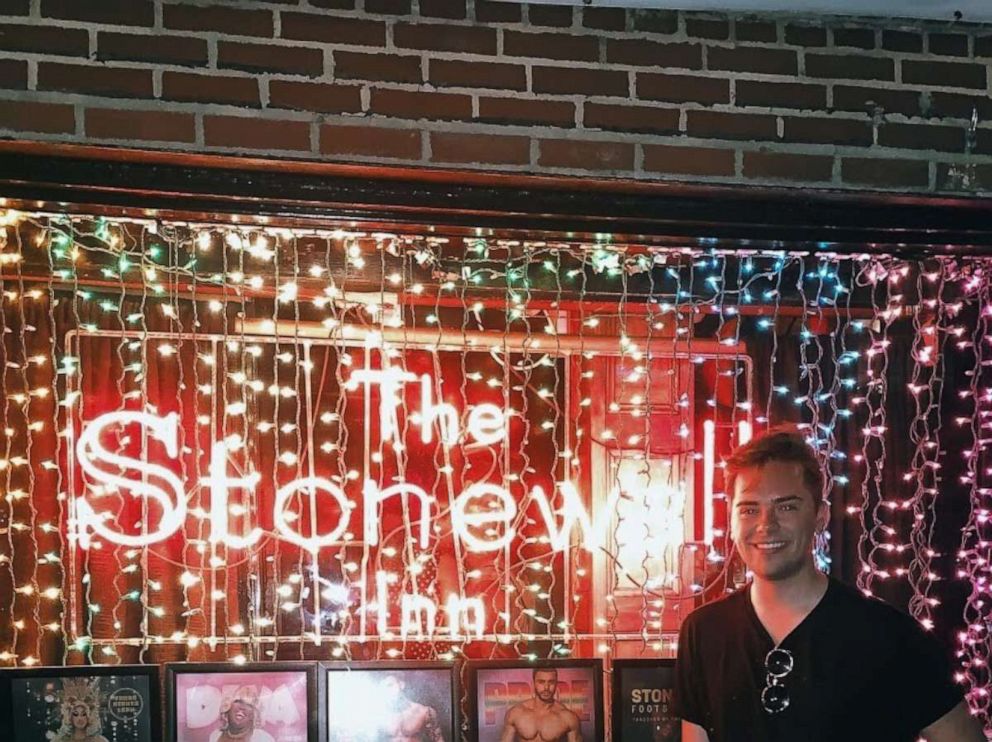
I also feel responsible to uphold that legacy. I hope to work in the political arena, whether that be in electing more LGBTQ+ leaders or working alongside public policy researchers, in order to do so.
I was able to pursue this dream while working for Buttigieg from July 2019 to March 2020. The first serious openly gay contender for president, Pete's example gave me courage to speak my truth, and it was the experience of a lifetime to get to work on his campaign.
Being on Team Pete gave me the unique chance to pursue my passion for politics while working with staff who not only believed in Pete, but in me as well.
To me, part of being in this community means recognizing and understanding the discrimination others face and working toward equality for all. I can't fully celebrate Pride month when I know the black community is hurting, and so I honor my pride by fighting for Black Lives Matter, donating and protesting and educating myself on how I can make this country a better place.
More than anything, I've learned that there is power in raising our voices and speaking together.
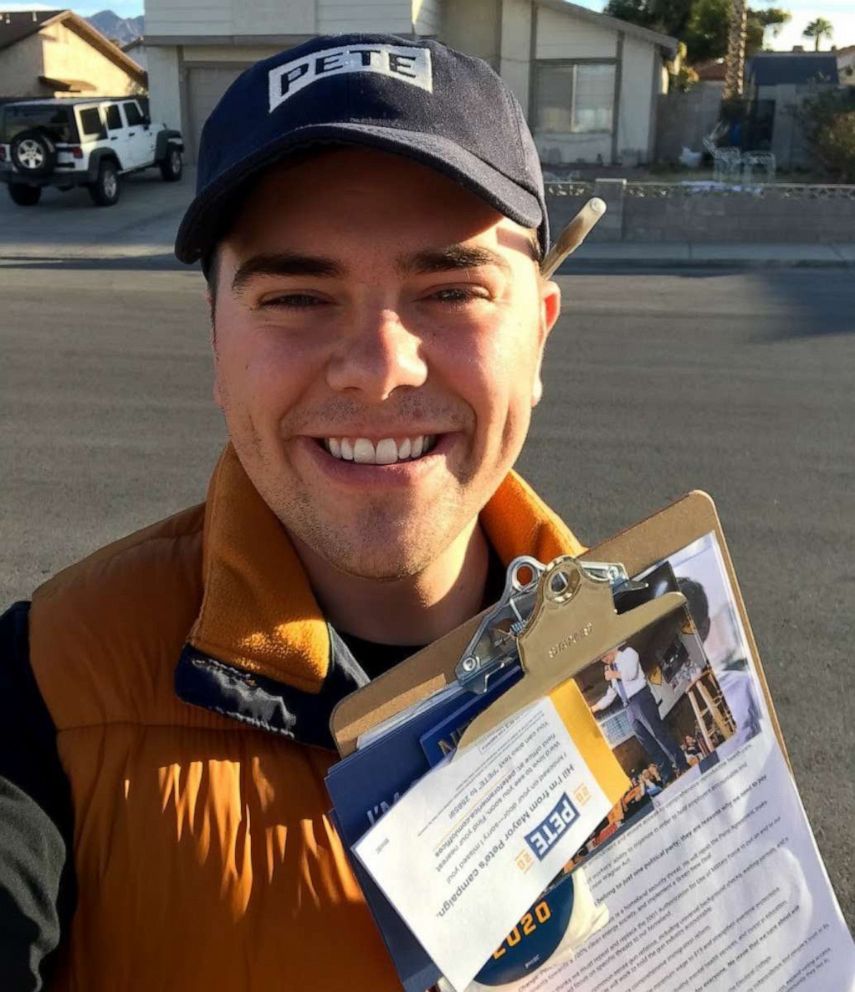
Not long after I graduated, my classmate Emma Gee came out as BYU's first openly LGBTQ+ student athlete. Shortly thereafter, Nathan Ivie, one of Utah county's commissioners, became the first openly gay Republican elected official in Utah's history. Even popular TikTok personality and BYU student Daniel Spencer used his platform to share his story of accepting his sexuality.
Moment by moment, more LGBTQ+ people are sharing their voice and proving that we are no longer willing to stay silent. It shows that there is something bigger than any one of us rolling forward, bringing forth a more diverse and meaningful community than ever before.
However, there is still work that needs to be done.
Earlier this year, BYU removed the clause in its honor code banning all forms of homosexual expression, only to then tell queer students that they are still required to abide by this (now unwritten) rule.
"Same-sex romantic behavior cannot lead to eternal marriage and is therefore not compatible with the principles included in the honor code," Paul V. Johnson, commissioner of the church education system, wrote in a letter to students.
It was frustrating to hear about this, even though I'm no longer a student at BYU. One step forward, two steps back, they say.
Even more so, it leaves at-risk LGBTQ+ students left to feel the brunt of being pulled back and forth. I have a friend on campus who finally felt safe to come out after the clause was removed, only to be left vulnerable and exposed when the university finally clarified the meaning after more than two weeks. It's hard not to feel like our humanity is often forgotten.
There is still a long road ahead for students at BYU, but there are brilliant students and faculty working hard to make sure that the day will come. I'm hopeful that it will.
In the meantime, I'm OK with watching the cottonwood seeds float around and thinking of how I'll change by the next time I see them.
Sure, I may not get to go on "The Ellen DeGeneres Show" again, but I know now that my story isn't even close to being over. I have a life full of rich experiences ahead of me, and if coming out has taught me anything, it's that I'm finally ready to live it.
Editor's note: This was originally published on June 22, 2020.
